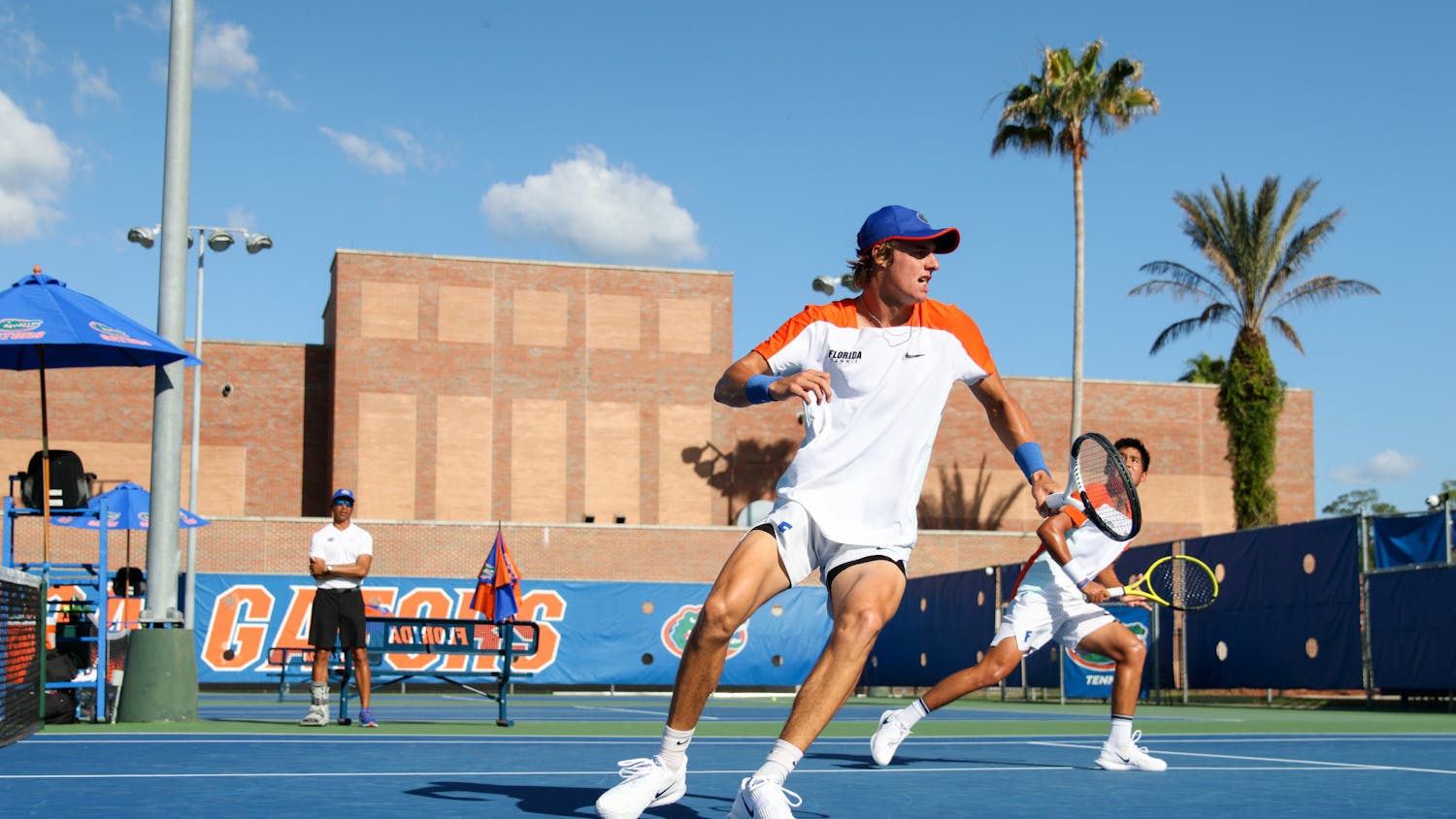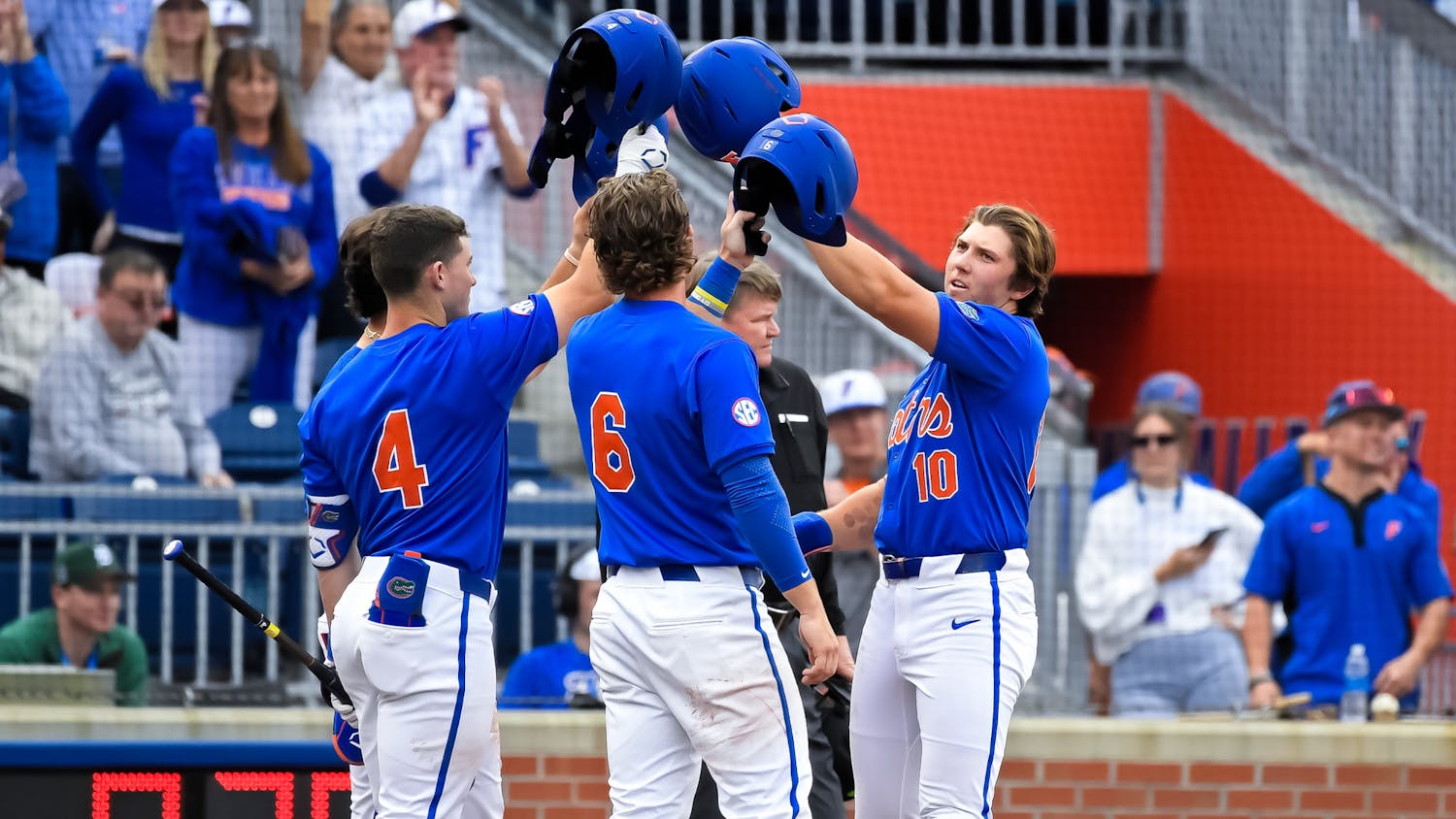As people across the nation fill out their brackets, no team is causing more crossouts, rewrites and do-overs than Florida.
Without question, the Gators are the most interesting team in the 2013 field.
Florida has led the nation in efficiency for much of the year, usually by a pretty wide margin.
Most analysts who employ a progressive, stats-based approach love Florida. The model used by statistician Ken Pomeroy gives the Gators a 21 percent chance of winning the tournament, higher than anyone else in the field.
Analysts who approach the tournament more traditionally — I think that’s the nicest way I can say that — point to Florida’s 0-6 record in games decided by single digits as a sign that the Gators aren’t clutch and will fold under pressure.
Thus, some in the Twittersphere have tried to frame Florida as a test case in the battle of Numbers People versus Traditionalists.
This is a flawed approach for a number of reasons, and I don’t think either side is 100 percent right. The Gators are plenty clutch and plenty efficient, but their volatility will ultimately hold them back.
As I’ve written before, “clutch” isn’t real. Yes, it’s possible to tense up in big moments. To shy away from the limelight. To be so scared of failure that making a winning play is nearly impossible. The Gators don’t have that problem, as Billy Donovan has said all season long.
Each close loss, especially lately, has come down to Florida missing makeable shots. In Sunday’s 66-63 loss to Ole Miss, bad officiating, missed free throws and missed open threes were the biggest factors. That’s called bad luck.
Turning the ball over late could be a sign of a team crumbling under pressure, but UF turned the ball over just once in the final 11 minutes against Ole Miss.
As Donovan said, this whole clutch thing is people trying “to create drama around a situation that isn’t necessarily true.”
Florida beat Alabama by 10 on Saturday. If the Crimson Tide had hit a meaningless three at the buzzer, you’d be reading about how the Gators proved they could win a close game. The perception of this team would be entirely different based on absolutely nothing.
The stats community is with me on this. They understand that consistently outscoring your opponent by a wide margin is good.
The Gators are the only team to rank in the top five in both offensive and defensive efficiency. In fact, they’re the only team that even ranks in the top 10 in both.
In the past 10 years, only 10 teams have finished the year ranked in the top five in both categories. Five of them won the national championship. Another two were knocked out of the tournament by other teams that ranked in the top five in both categories. So only three of the 10 have lost an NCAA Tournament game to someone outside that group.
That some consider UF the favorite is no wonder.
When they’re hitting threes, the Gators look and feel like the best team in the country. When they aren’t, they get labeled choke artists. The efficiency ratings throw all this together, and the good outweighs the bad such that UF rates really, really well. But the Gators are far from danger-free.
The factor both sides are underestimating is Florida’s volatility. As the esteemed @NotGregLuca first pointed out to me, analysts have a bevy of choices when asked to pick Florida’s X-factor.
Is Kenny Boynton shooting well? Does Mike Rosario have his head on straight? Is Patric Young trying? Is Will Yeguete 100 percent healthy? Is Michael Frazier knocking down threes?
If all of those things go well, Florida is the national title favorite. If all were to go poorly, UF would be an NIT team. Each is nearly impossible to predict, so who really knows?
Florida as a whole is erratic because of its offensive style. The Gators take 40.4 percent of their shots from behind the arc, more than all but two Final Four teams from the past 10 seasons. They also get to the free-throw line less often than all but one of the past 40 Final Four teams.
Because three-point shooting is a streaky, inexact science, the Gators will go on cold spells. Without a player who can truly create his own shot and break teams down off the dribble, threes are often UF’s primary source of offense. Thus, Florida’s offense is inconsistent.
If the 2013 NCAA Tournament was played 10,000 times, Florida would probably lead the field in efficiency but win fewer titles than most of the top seeds. The Gators would win some blow outs, lose some close games and even win some close games, clutch be damned. But, more often than not, they’d run into a rough patch somewhere in that six-game, 240-minute sample that would derail their title run.
So don’t get too worked up over the efficiency ratings, and don’t be too worried about clutch. Just recognize that in a single-elimination tournament, going six games without an off shooting night is awfully tough.
Contact Greg Luca at gluca@alligator.org.
Guard Michael Frazier II (20) drives toward the hoop during Florida’s 77-44 win against Georgia on Jan. 9 in the O’Connell Center.






